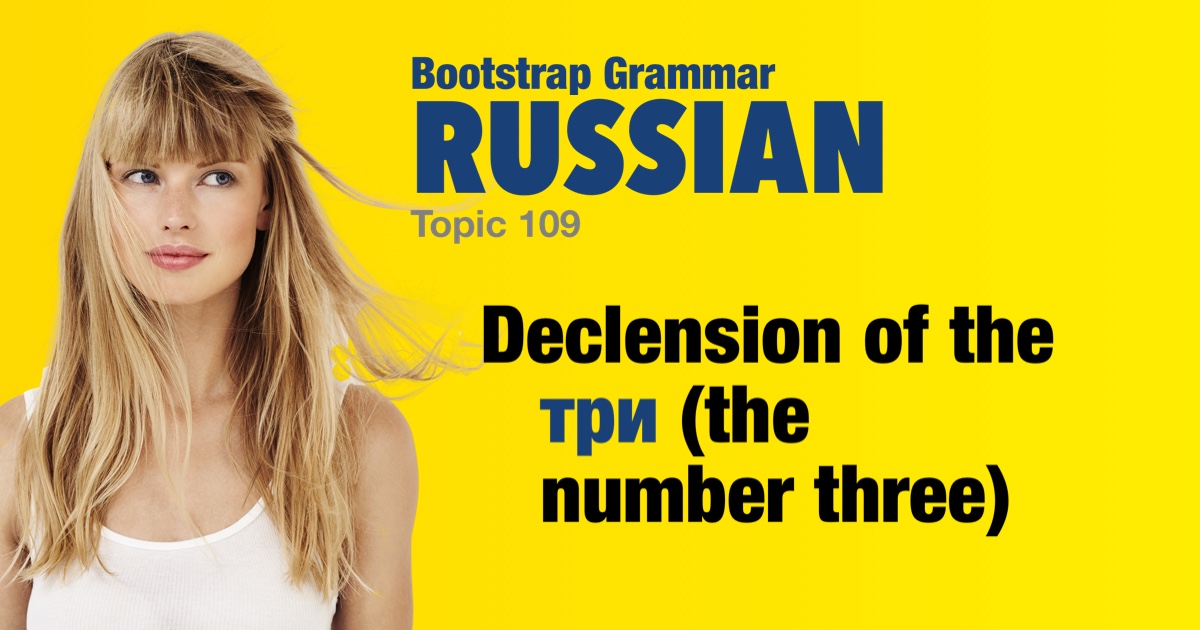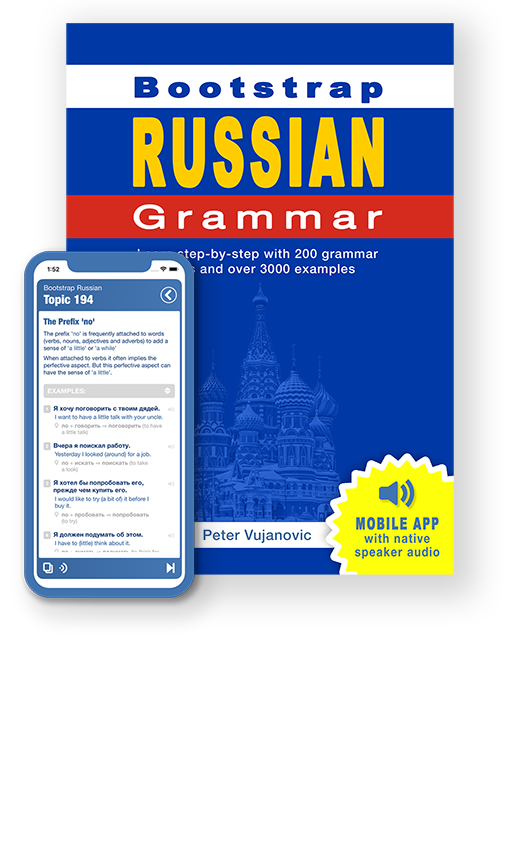Russian grammar - Declension of the три (the number three) |
|||
|
|||
In this topic we cover the declension of the number три in the nominative, prepositional, accusative and genitive cases for each of the genders. For три there is no difference across genders: • Nominative: три • Accusative animate: трёх • Accusative inanimate: три • Prepositional: трёх • Genitive: трёх Recall that in the nominative 2, 3 or 4 objects take the genitive singular. |
| Examples: | |
|
У тебя есть три чашки.
You (informal) have three cups.
|
|
|
Вы говорите о трёх чашках.
You (formal) talk about the three cups.
|
|
|
Вы видите три чашки.
You (formal) see three cups.
|
|
|
У меня нет трёх чашек.
I don't have three cups.
|
|
|
У нас есть три стакана.
We have three glasses.
|
|
|
Мы говорим о трёх стаканах.
We talk about the three glasses.
|
|
|
Мы видим три стакана.
We see three glasses.
|
|
|
Я вижу трёх больших слонов.
I see three big elephants.
|
|
|
У неё нет трёх стаканов.
She doesn't have three glasses.
|
|
|
У него три яйца.
He has three eggs.
|
|
|
Он говорит о трёх яйцах.
He talks about the three eggs.
|
|
|
Он видит три яйца.
He sees three eggs.
|
|
|
У них нет трёх яиц.
They don't have three eggs.
|
|
 |
|



